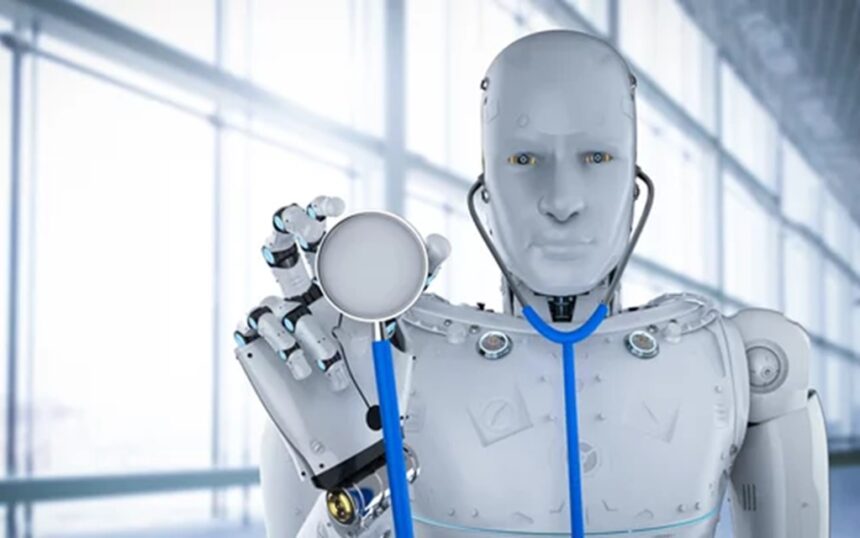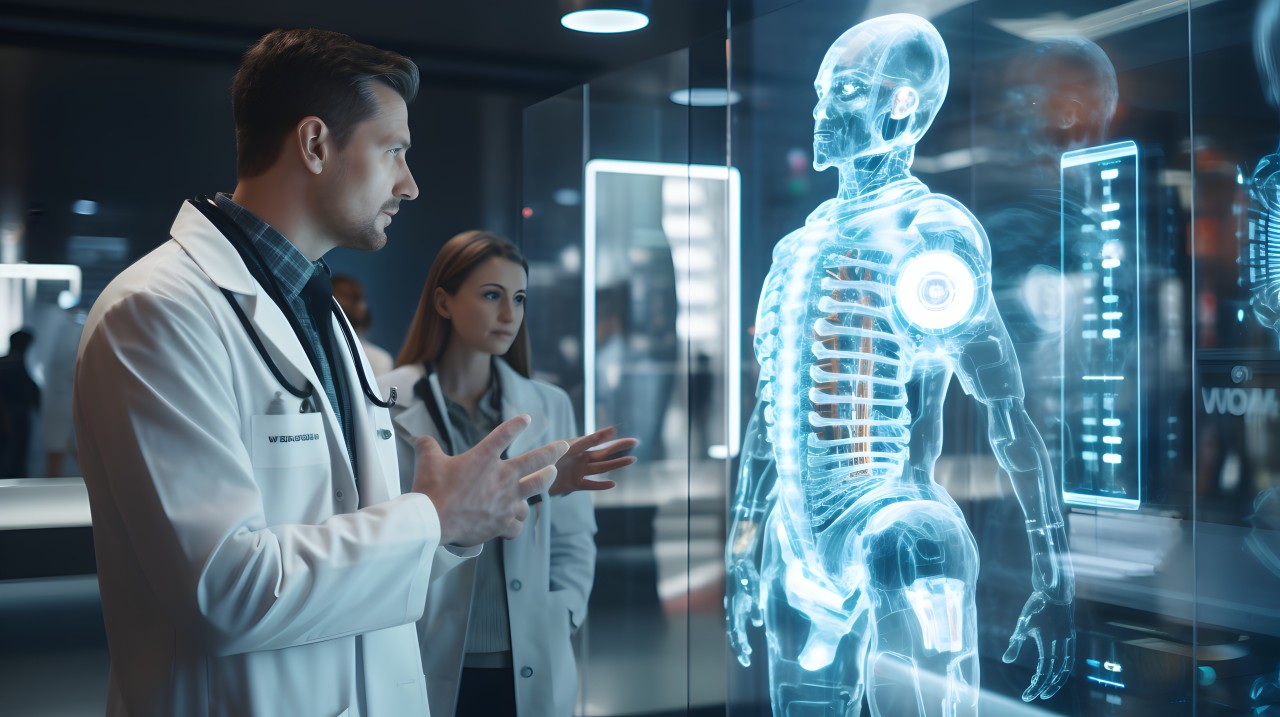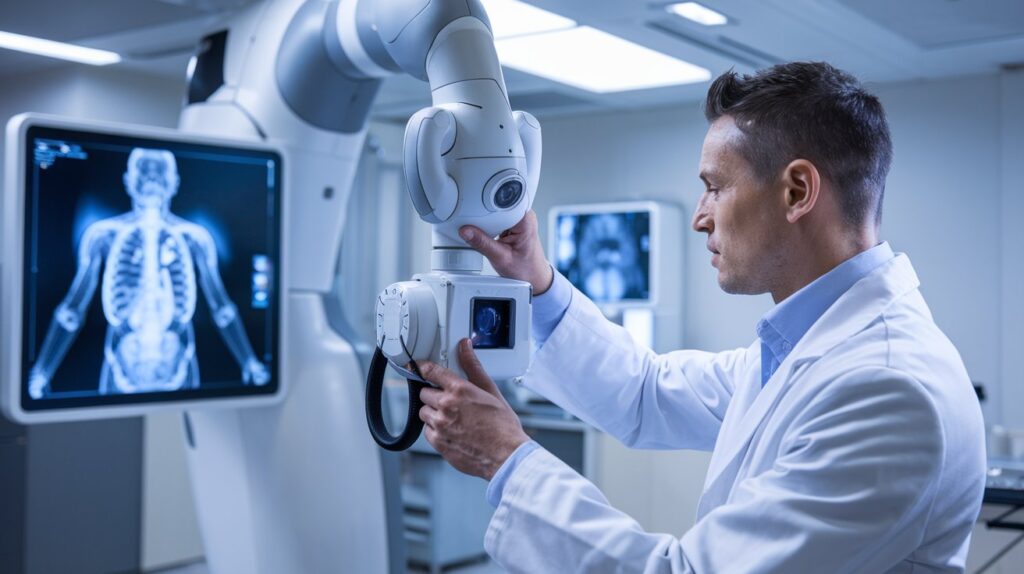Artificial intelligence (AI) is rapidly changing many fields, and healthcare is no exception. But how far will it go? A recent study put AI to the test, comparing an AI chatbot’s diagnostic abilities to those of human doctors.
The results were surprising: the AI chatbot achieved a 90% accuracy rate in diagnosing illnesses, while doctors without AI assistance scored only 74%.
This raises a big question: are we headed toward an AI-driven future in healthcare? Let’s explore the study’s findings, consider what patients think, and examine the potential of AI in medicine. You can see the report covered by CGTN America in this YouTube video.
The Stanford Study: AI Chatbot Diagnostic Prowess
Researchers at Stanford conducted a study to evaluate how well an AI chatbot could diagnose illnesses compared to human doctors.
Here’s what they found:
- Accuracy in diagnosis: The AI chatbot achieved a 90% accuracy rate, significantly higher than the 74% accuracy of doctors without AI.
- Decision-making: The AI chatbot outperformed doctors who relied on traditional resources in making clinical decisions. It performed just as well as doctors who had access to the conversational ai chatbot for assistance.
The study also highlighted the speed and efficiency of AI in processing vast amounts of information. AI can quickly analyze data and identify patterns that might take humans much longer to recognize.
Patient Perspectives: Will You Trust an AI Doctor?
What is an AI chatbot? The video interviewed several people to get their thoughts.
One person felt that AI chatbot assistant is a useful tool to supplement or even replace doctors at times. However, they also said that most people, including themselves, wouldn’t be comfortable handing the reins completely to AI. They believe that humans still need to be involved.
Sana, a pre-med student, mentioned that there’s constant discussion at her university about the effectiveness of using AI in medicine. She said, “I don’t think it’ll entirely replace doctor’s jobs because there’s empathy and there’s a lot of compassion that goes into being a doctor and working with patients.”
Baharin, who had heart surgery a decade ago, hopes we’re still a long way away from AI completely replacing doctors. “If I have to have a heart surgery again,” he said, “I am not going to be thrilled if the surgery is basically driven by AI. I want a skilled doctor who uses AI as a part of the procedure and diagnosis.”
These perspectives reveal a common theme: people are open to AI as a tool, but they’re wary of fully replacing human doctors. They value the empathy, compassion, and personal connection that human doctors provide.
AI’s Diagnostic Strengths
AI is showing great promise in healthcare.
According to the CEO of Atropose Health, AI is surpassing human ability in many diagnostic tasks, such as examining blood slides and identifying skin problems. You can find out more about their company on the Atropose Health website.
What are the benefits of using AI in diagnosis?
- Improved accuracy and speed: AI can analyze data more quickly and accurately than humans, leading to earlier and more accurate diagnoses.
- Potential for earlier diagnoses: AI can identify subtle patterns and anomalies that might be missed by human doctors, potentially leading to earlier diagnoses and treatment.
- Increased efficiency: AI can automate many of the routine tasks involved in diagnosis, freeing up doctors to focus on more complex cases and patient care.
ChatRWD: AI-Powered Medical Insights
Atropose Health has developed ChatRWD, a generative AI chat interface that can answer medical questions and even produce new studies by analyzing historical data.
Imagine a doctor needs to determine the most effective weight loss drug for a diabetic patient with liver disease. With ChatRWD, the doctor can input the patient’s information and receive a new study generated from patient-level data.
The CEO explained that doctors often lack high-quality evidence to guide their decisions. ChatRWD addresses this by converting text input into a study, running it on a patient-level dataset, and producing new statistics and analysis on tens of thousands of people who resemble the patient. This new study is then provided to the doctor to help inform their treatment recommendations.
Integrating AI-Produced Studies into Patient Care
How can AI-produced studies be integrated into patient care?
Hyde envisions a future where a doctor visits with a patient, notes are generated automatically, and AI-produced studies appear instantly within those notes. This would provide doctors with the most relevant and up-to-date information to make informed decisions.
It’s important to remember that the doctor ultimately makes the decision. AI is a powerful tool to inform their judgment, but it shouldn’t replace their expertise and experience.
Here are some potential benefits of integrating AI-produced studies into patient care:
- More informed decision-making: Doctors can make more informed decisions based on the latest research and data.
- Personalized treatment plans: Treatment plans can be tailored to individual patients based on their unique characteristics and medical history.
- Improved patient outcomes: By providing doctors with the best available information, AI can help improve patient outcomes and quality of life.
The Future of AI in Healthcare
AI has the potential to revolutionize healthcare, but it’s not about replacing doctors. It’s about augmenting their abilities and providing them with the tools they need to deliver the best possible care. AI-chatbot can improve accuracy and speed, enable earlier diagnoses, and personalize treatment plans.
The human element remains essential. Empathy, compassion, and the ability to connect with patients on a personal level are things that AI can’t replicate. The future of healthcare will likely involve a combination of AI and human expertise, working together to improve patient outcomes.
















